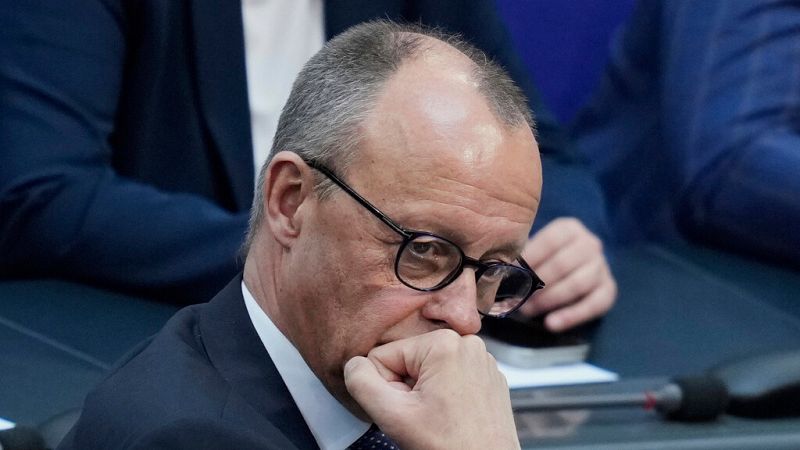
CDU leader Friedrich Merz's remarks that he would consider sending Taurus missiles to Ukraine have sparked optimism among European allies and hesitation from a key domestic coalition partner.
Merz, widely expected to be Germany's next chancellor, said Sunday night he would consider sending the German-made long-range missiles as part of a wider package of support agreed by European countries.
He added that the missiles could be used to target the Kerch bridge — a critical land connection between Russia and the occupied Crimean peninsula.
The chancellor-designate's comments markedly shift from those of his predecessor Olaf Scholz, who repeatedly refused to provide Ukraine with the Taurus.
European allies cheered Merz's openness to sending the weapons, with Dutch Foreign Minister Caspar Veldkamp calling it an "important signal as to where Europe stands in this situation." His Polish counterpart labelled the idea as "very good".
The EU's High Representative for Foreign Affairs Kaja Kallas said in her response that Europe "must do more so that Ukraine can defend itself and civilians do not have to die."
'Good arguments against it'
However, at home, Merz's willingness was met with hesitation from Defence Minister Boris Pistorius, a likely member of Merz's next cabinet, comprised of a CDU/CSU and SPD coalition.
At a conference in Hannover, Pistorius appeared to be interested in rethinking the idea. While there are some fair points in favour of supplying the missiles, he said, there are also "good arguments against it".
Pistorius also refuted claims he was in favour of delivering the missiles in the past. "I never said that," he argued.
Pistorius also questioned Germany's ability to coordinate missile delivery with other allies due to its specific nature. "I don’t know any European partner with such a system," he said.
Johann Wadephul, vice chairman of the CDU parliamentary group and potential pick for Merz's new foreign minister, said he still believes a decision with the SPD on delivering the missiles is possible.
Whilst Scholz argued that sending the missiles to Kyiv risked making Germany party to Russia's all-out war in Ukraine, Wadephul said that the SPD was aware "that we have to deal with Putin differently," referring to a Russian attack in the city of Sumy on Sunday that killed at least 34 people on Sunday.
However, Wadephul told the Bavarian Media Group that his party would "come to a common position and decision that is then supported by everyone."
So far, the US, the UK and France have delivered long-range missiles to Ukraine.







